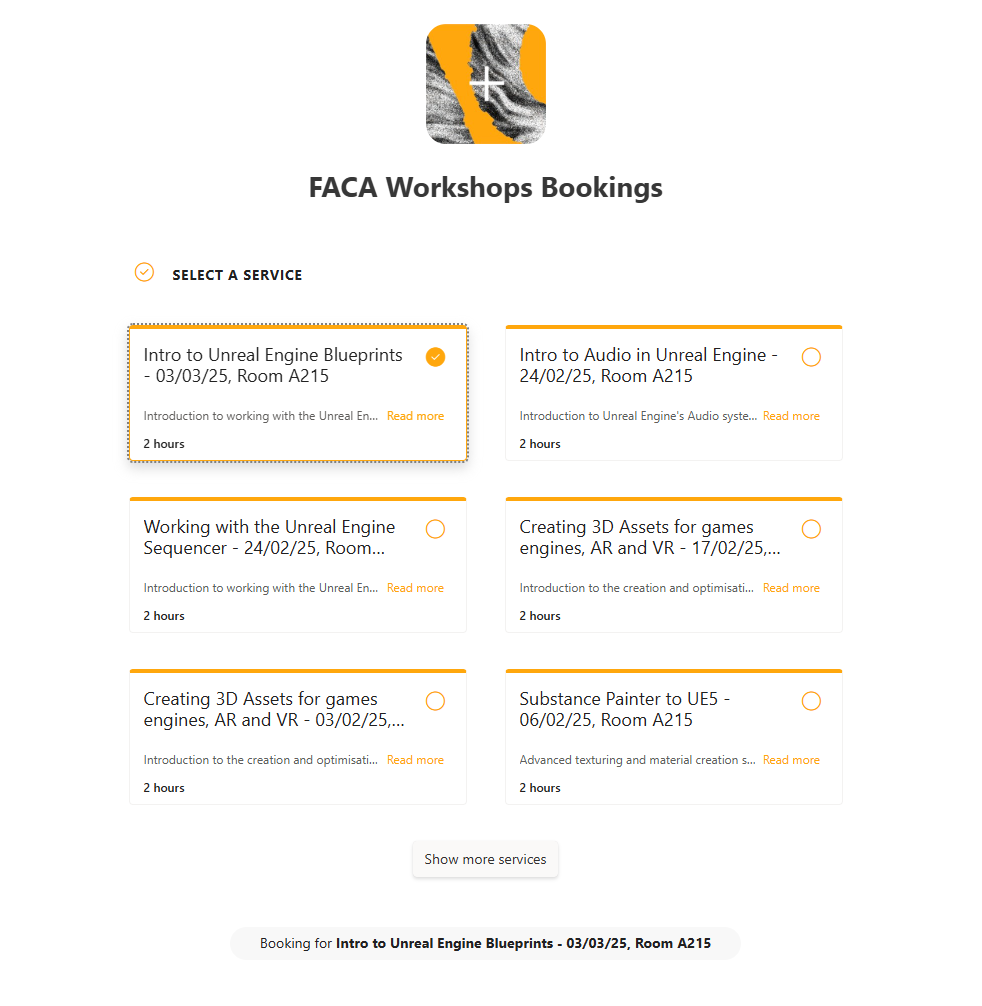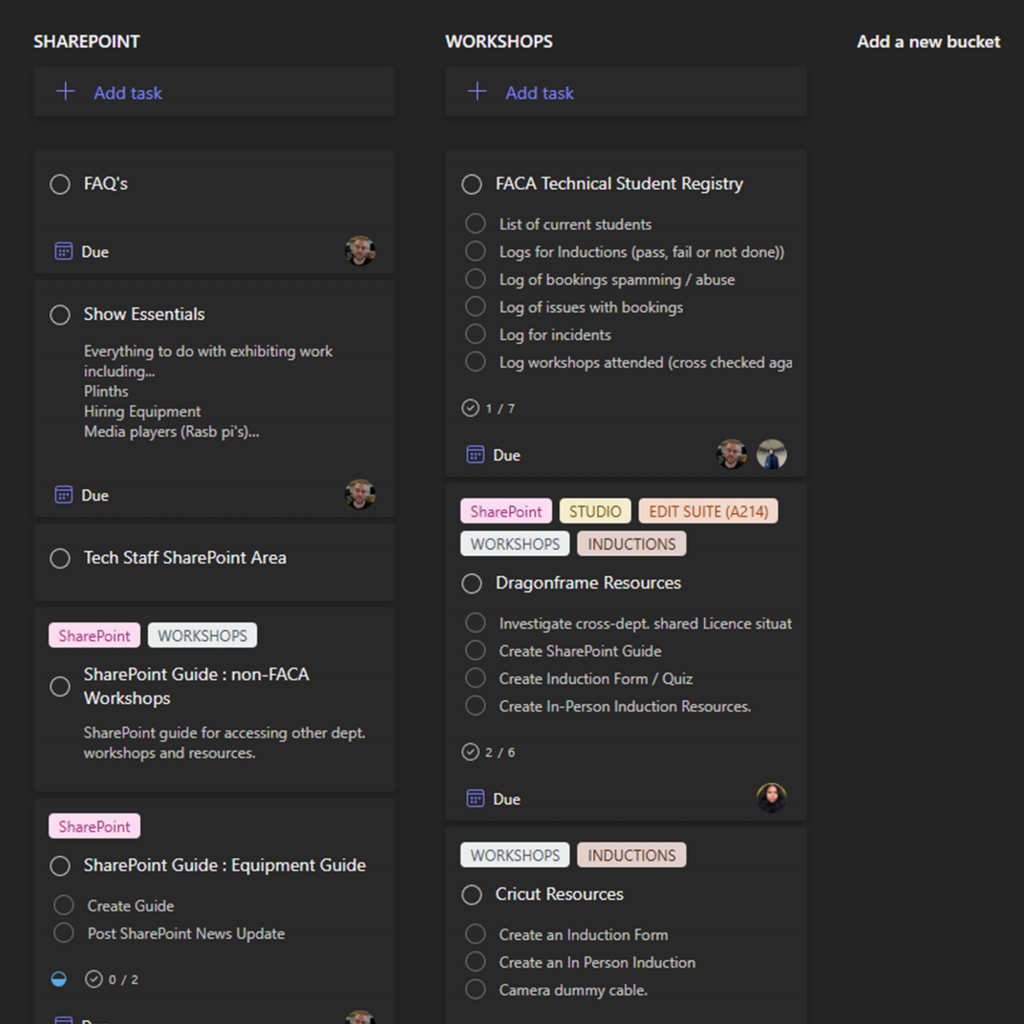Re-thinking the delivery strategy.
As a technician on Camberwell’s Fine Art Computational Arts course I am solely responsible for organising and structuring the workshops program alongside academic feedback. I have identified a requirement for assessing student engagement with the technical workshops program in order to ensure parity of access across the Computational Arts cohorts. This has in turn led to me completely re-thinking the workshop delivery strategy for the FACA courses.
Technical Re-assessment.
Assessing Skill Levels for Workshops.
Workshops initially designed per cohort (BA and MA), were organised in terms of skill depending on said group and required mandatory attendance from students on set days. I quickly identified significant disparities between student skill levels within each group, affecting parity between learners.

Student Feedback.
In order to address this skills disparity, I first needed a way to gauge the success of my technical delivery. I went about designing student feedback forms via Microsoft Forms that could be used to gather feedback on the workshops program. I also held informal student feedback sessions in which I encouraged students to discuss what subjects interested them and how difficult they had found the workshops program so far.
This feedback helped to highlight the following issues:
- Student technological skills and experience varied drastically within each year group and pathway. Some students left sessions complaining that the subjects were too easy, others felt overwhelmed by the steep learning curves.
- Students complained that they didn’t need to – or didn’t understand why they needed to – learn specific subjects.
- Students complained that they couldn’t make it to workshops on their group’s designated days.
- Student expectations of technical learning on the course varied significantly.
In response to this feedback, I designed the following strategies:
- To move the workshops to a sign up model and to allow open sign ups for all years.
- To structure workshop sessions in terms of skill level rather than year group or pathway and allow BA’s and MA’s to attend along-side one another.
- To create a year in advance workshops calendar that could be used to design a workshops and technical workflows guide for students available via the FACA Technical SharePoint.
- I created a technical resources guide on the FACA Technical SharePoint, which includes starters guides to a wide range of Computational Arts equipment, software and subjects. This was introduced to students at he beginning of the year in order to create an understanding of the learning pathways and expectations for skills building on the course.
- The technical team moved to using Microsoft Planner, in order to organise around an ‘Agile’ task management system (Sanchez & Nagi, 2001). This was to better track and scope our work-load whilst planning workshops and designing online learning content.

Conclusion.
In introducing the sign up model for workshops we have received positive feedback from students and it has created more flexible scheduling for my role that adds some additional protections against burn out. Unfortunately I have however observed some attendance drop-off as a consequence of workshops no longer being mandatory per year group.
Going forwards with the new sign-up model, I recognise that we need to maintain a feedback system in order to fully assess the cause of any additional drop-off in attendance. To do this I have introduced a voluntary ‘check-in’ form that records attendance and workshop information. Whilst this is voluntary it has so far given us enough data to see that some students are signing up for workshops and not attending them, which now requires us to reassess issues with our booking systems. We have also had conversations with the academic team to discuss the potential of providing some kind of credit system so that students are encouraged to attend a minimum number of workshops per term. It is not yet clear however how this system might work or whether it would be successful.
References.
- Sanchez, L. M., & Nagi, R. (2001). A review of agile manufacturing systems. International Journal of Production Research, 39(16), 3561–3600. https://doi.org/10.1080/00207540110068790


Leave a Reply